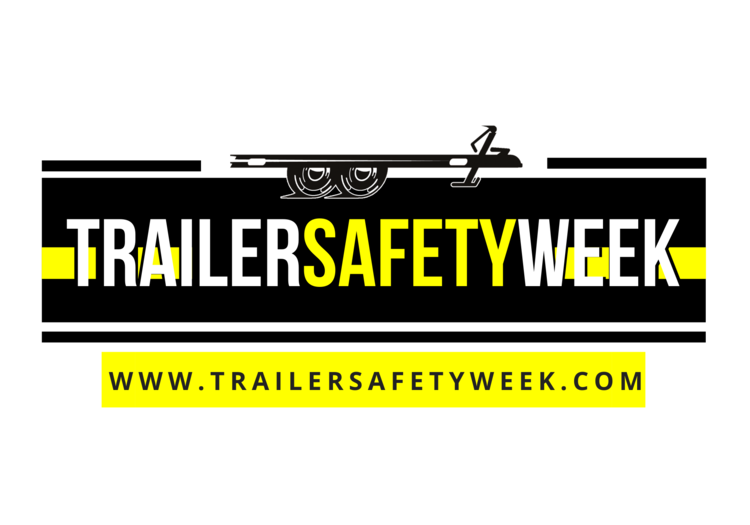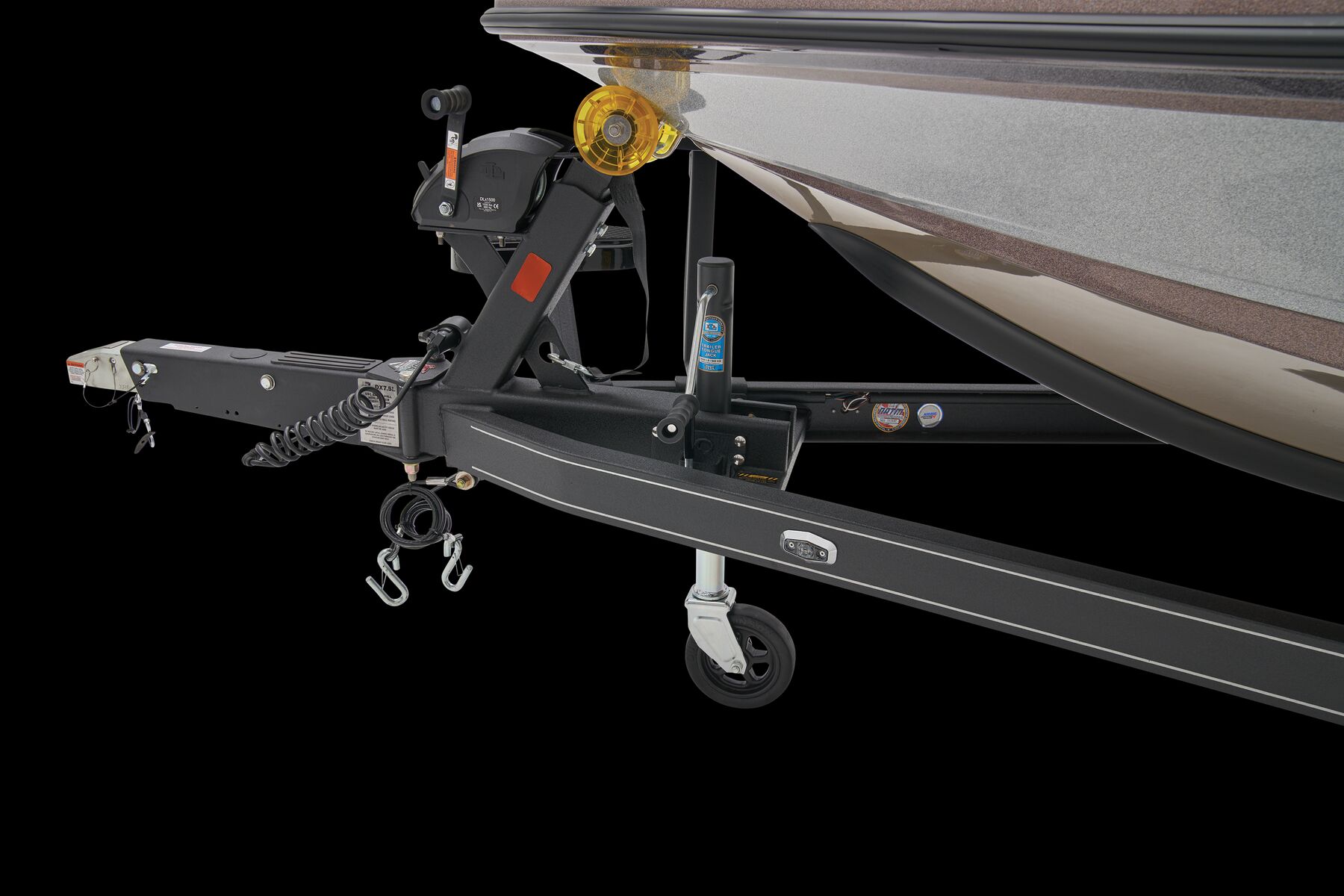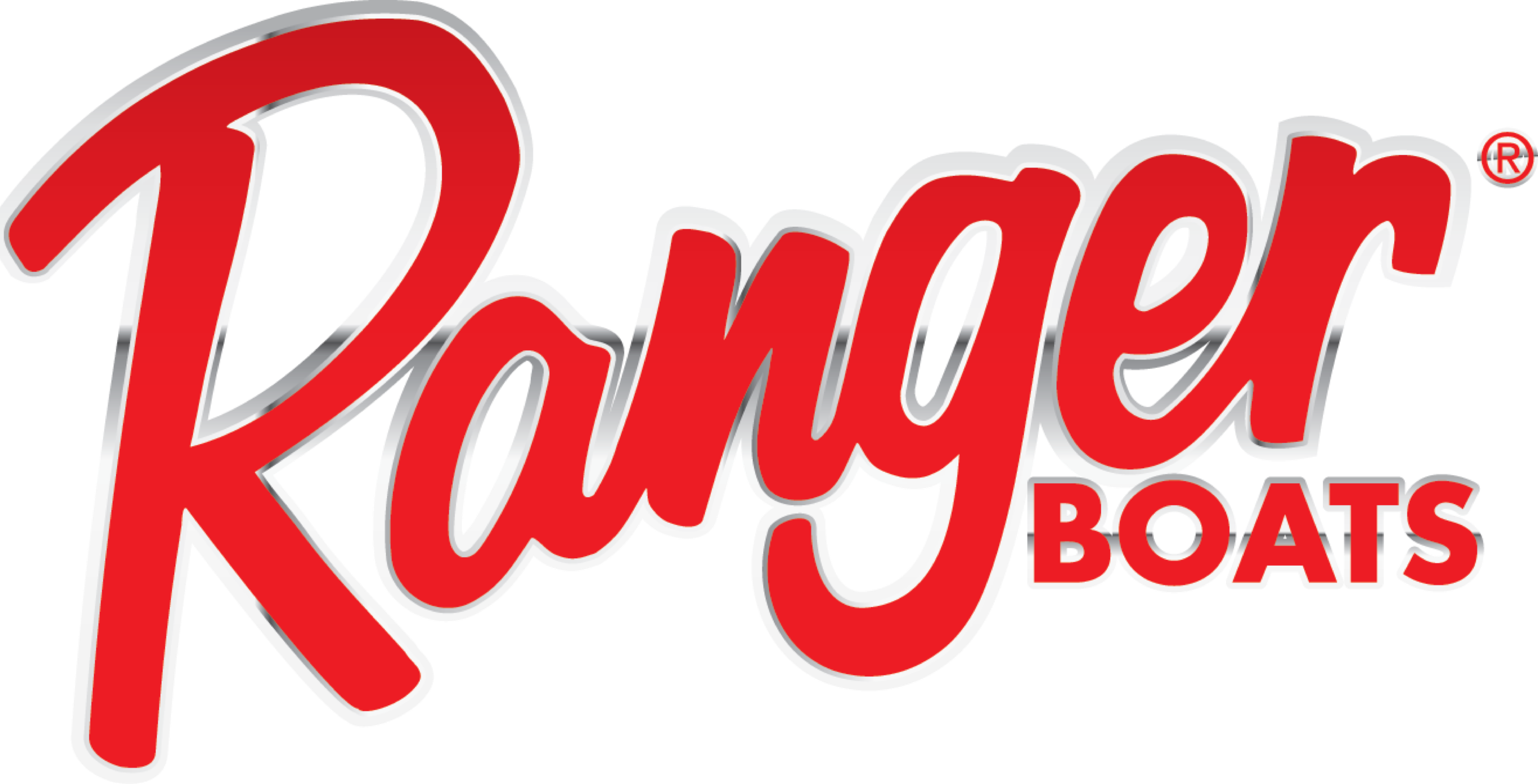
Trailer Safety Guide & Tips: Safe Towing 101
Trailer Safety Week

The National Association of Trailer Manfacturers has launched an annual, week-long campaign to increase awareness around trailer safety, and the responsibility of trailer owners, dealers and manufacturers to achieve it. The NATM's missions is to improve the safety of the nation’s roadways by providing educational information for end users, dealers, and manufacturers on safe trailering practices. Trailer Safety Week is an effort to reduce the number of under-educated end users on the proper use of trailers, and it is crucial to utilize the connections that dealers and manufacturers have with consumers in order to raise awareness of proper towing techniques and maintenance.
Millions of trailers are constantly traveling the nation’s roadways every day. Businesses, local governments and individuals contribute to trailer traffic for commercial and recreational purposes. With the number of trailers found on roadways, it becomes an important responsibility to ensure that trailers are being towed safely for the sake of everyone else sharing the roads. Below are 7 points for Safe Towing according to trailersafetyweek.com.
1. Driving with a Trailer
Towing comes down to a number of factors: the driver, tow vehicle, and trailer. The driver is responsible for understanding the load they are hauling, and selecting the right tow vehicle and trailer for the job. They also need to know how to hitch the unit, load it, steer it, and what is the optimal speed for safe travel and braking. All components of the tow vehicle and trailer affect towing performance. Safe and proper driving is a critical piece of trailer safety. Drivers should be focused and limit or eradicate distractions.
It's important to understand that the tow vehicle and trailer must be compatible for optimal safety. The tow vehicle's power needs to be sufficient to handle the weight and size of the trailer, thereby minimizing the risk of performance inefficiencies or accidents. Furthermore, ensuring proper weight distribution within the trailer plays a significant role in stability while driving; uneven loads can lead to swaying, making the entire rig harder to control. Moreover, before embarking on any towing journey, drivers should meticulously inspect all crucial elements, such as tire pressure and brake functionality, to prevent potential hazards. Consequently, being prepared and informed makes a significant difference in promoting a secure and efficient towing experience.
2. Know Your Hitch
Understanding the wide range of hitch devices available, each suited for different towing scenarios, is critical for a secure connection between your trailer and tow vehicle. There are various types of hitches—such as ball hitches, pintle hitches, and fifth-wheel hitches—each designed to accommodate different weight capacities and trailer types. Selecting the right hitch involves considering the weight and type of trailer being towed, as well as ensuring compatibility with the tow vehicle's hitch receiver. After settling on the appropriate hitch system, it's crucial to execute the correct installation procedures. This helps ensure a quality connection between the trailer and the tow vehicle, and mitigates the risk of detachment during transport with added safeguards in case of a failure. Furthermore, it is vital to manage tongue weight appropriately, as excessive or inadequate tongue weight can significantly impact the stability and handling of the entire towing setup.

3. Loading & Weight Distribution
Properly loading a trailer is essential for maintaining control and safety while towing. The most frequent cause of losing control during towing is improper loading, which can significantly affect the stability and handling of your trailer. Achieving the right weight distribution, both from front to back and side to side, is critical for preventing sway and ensuring smoother rides. Securing cargo is especially important, as unsecured items can shift, inadvertently redistributing weight and creating hazardous conditions. However, it’s crucial to acknowledge that trailers are often designed for specific purposes, such as transporting a cement mixer, and as such, the owner's manual might recommend unique loading techniques tailored to these specialized circumstances. Therefore, it is imperative for trailer owners to thoroughly read and adhere to their owner's manual instructions, which can provide guidance beyond the general rules of thumb, ensuring a safer towing experience.
4. Tow Vehicle Selection
Choosing a tow vehicle carefully is essential as towing a trailer will inevitably impact how any vehicle handles and performs. The larger the towed object is, the greater the impact it will have on the performance of the vehicle. Acceleration, braking, and maneuverability can all be affected. Understanding what your tow vehicle is capable of towing is just as crucial as selecting the correct trailer for your needs. Vehicle manufacturers provide a “tow rating,” which signifies the maximum weight a vehicle can safely tow when the trailer is fully loaded. Importantly, the Gross Vehicle Weight Rating (GVWR) of the trailer should never exceed this tow rating, even if the trailer is not fully loaded. Exceeding these limits can lead to undue strain on the tow vehicle's engine, transmission, and suspension, potentially resulting in mechanical failures or accidents. Adhering to these tow ratings and ensuring that your vehicle and trailer are properly matched promotes safety and also helps to maintain the longevity of your towing setup. Stay familiar with your owner's manual for specific recommendations and adjustments that might be necessary based on your particular towing combination.
5. Tailer Components
Understanding the many components that make up your trailer is important to ensuring you are ready to tow safely. It is essential to recognize the importance of adequate brakes, which not only ensure stopping power but also help prevent the excessive wear on both the trailer and tow vehicle's braking systems. Properly inflated and rated tires are equally crucial to ensure your tires meet the load requirements. Inflating tires according to manufacturer specifications can help avoid blowouts and improve fuel efficiency. An added measure is crossed safety chains under the tongue of the trailer to serve as a secondary safety mechanism. In the unlikely event of a hitch failure, the chains will help prevent the trailer from detaching from the vehicle completely. Working lights, including tail lights, brake lights, and turn signals, enhance visibility to other drivers, crucial for communicating your movements on the road, particularly during poor weather conditions or nighttime driving. Additionally, regular inspections of these components can help identify wear and tear before they become hazardous.
6. Keep Cargo Secure
Improperly secured cargo can cause weight redistribution, and possibly contribute to trailer sway the presents a significant safety risk while driving. When the cargo is not properly fastened, it may shift during transit. An unexpected weight imbalance of the trailer increases the likelihood of losing control. This instability also puts additional stress on the trailer and the tow vehicle, potentially leading to premature wear or mechanical issues. The consequences of unsecured cargo can extend beyond just vehicle performance; there is also a high risk of losing items onto the roadway. Such occurrences not only endanger the towed vehicle and its passengers but also create hazardous conditions for other motorists. Ensure all items are adequately secured before starting a journey. Properly using tie-down equipment, adhering to the cargo loading guidelines in the owner's manual, and routinely checking the load during travel can all contribute significantly to a safer towing experience.
7. Proper Maintenance
Regular trailer maintenance is essential to ensuring the longevity of your trailer, as well as making sure you are able to tow to your destination safely. Before towing make sure your trailer and its many components are in safe working order. Worn or broken trailer parts can cause loss of control, and injury may result. Key areas to examine include the braking system, lights, and tire conditions, each of which plays a critical role in maintaining safety on the road. In addition, lubricating moving parts and tightening bolts can prevent mechanical failures during transit. You must inspect, maintain, and service your trailer regularly to ensure safe and reliable operation. Keep detailed maintenance records as they provide a history of issues that have been addressed and help in scheduling future checks systematically. Prioritizing maintenance not only safeguards your travels but also extends the life of your towing equipment.
Ranger Trail® Boat Trailers
Decades of experience have taught us that a tailor-made trailer is crucial for ensuring both safety and performance on the road. At Ranger, we prioritize innovation and sound design, crafting each trailer specifically to match the boat it carries. This commitment not only eases the towing experience but also significantly contributes to safety. A well-fitted/innovative trailer minimizes the risk of accidents, ensuring that your boat is secure during transport. Trust Ranger Trail Trailers to provide you with a trailer that exceeds safety standards, allowing you to focus on enjoying your time on the water.







